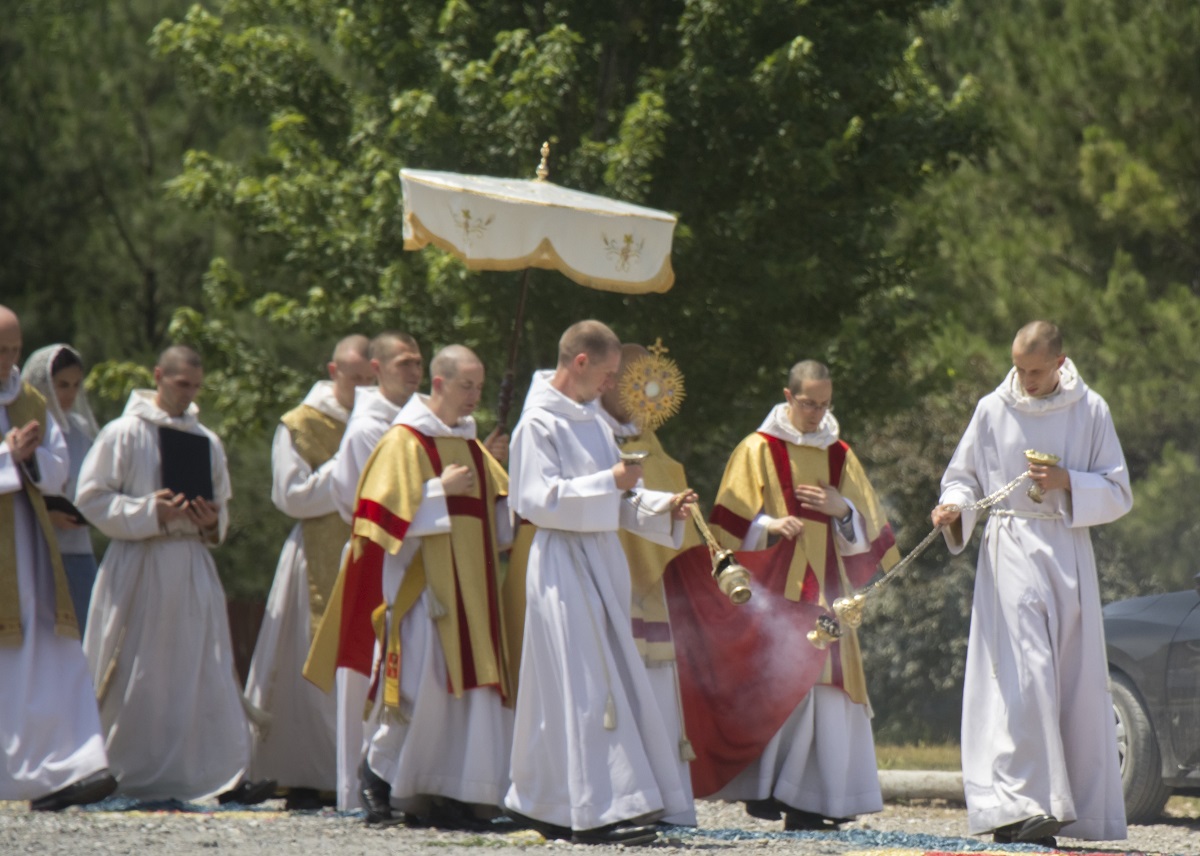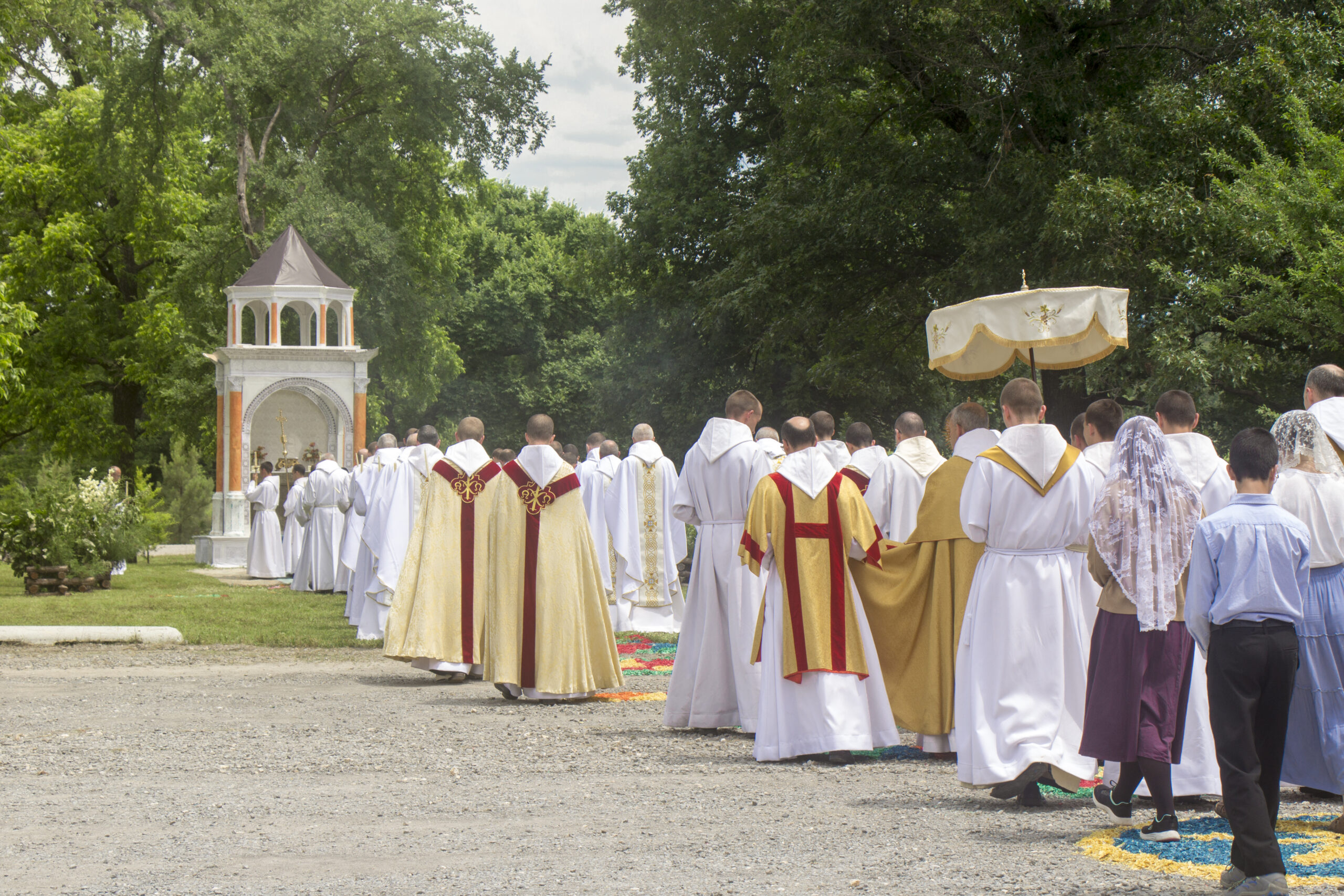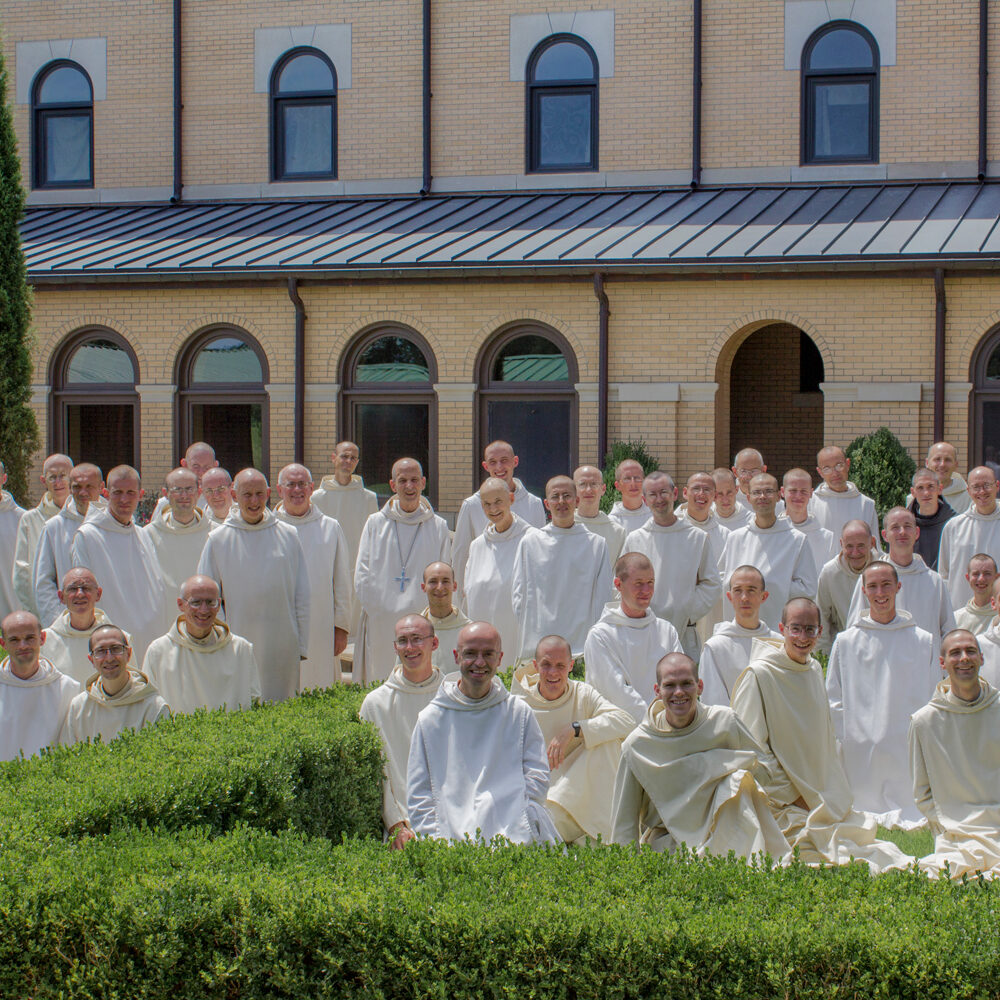Dear Brothers and Sister in Christ,
My Very Dear Sons,
When today, at the end of this Holy Mass, we make the traditional procession in honor of the Most Blessed Sacrament, the Holy Angels will look upon the scene (as the Saints tell us) with awe and wonder. “How can it be,” they might say among themselves, “that these poor mortals, these lowly human creatures, are allowed to carry the very Lord of Heaven and Earth, trapped, as it were, inside a small circle of gold behind glass, along a path of colored wood chips, to the tune (joyful, though slightly off key, perhaps) of their humble canticles?”
In a time before time really started on our earth, it is said that some of the Angels rebelled against God, precisely because it was revealed to them that someday, in the fullness of time, the Second Person of the Most Holy Trinity would assume a complete human nature to Himself, in view of saving the human race from its sin, and this revelation (it is conjectured) made these doubting Angels jealous. This is, at least, the view of a number of holy Doctors of the Church; it is their learned opinion, though such is not part of Revealed Scripture or of the de fide teaching of the Church. And now we see, in fact, that Our Lord not only took upon Himself our human nature, but also suffered for us, for our redemption, instituting at the moment of His Passion, the most Holy Eucharist, in which bread and wine are transubstantiated into the true Body and Blood Christ, to which are also joined inseparably the soul and divinity of Christ truly present on the altar. The Holy Angels, those who did not rebel, gaze in wonder and in love at it all. As the Curé of Ars, Saint John Vianney, was wont to say, “We carry Him, but it is really He who carries us.”
Now, the sacred liturgy refers in some places to the Most Holy Eucharist, to the consecrated Host especially, as the “Bread of Angels.” Why is this? Does this mean that the Angels eat of this supernatural and most extraordinary Bread? Well, not really. The Blessed Sacrament we carry in procession, is a Sacrament, a sacred sign that realizes what is signifies, and this for us human beings, as a means of our sanctification. The good Angels are already sanctified and do not need Sacraments. They do not receive as we do the consecrated Host. Of course. The Blessed Sacrament is really called the “Bread of Angels,” in reference to a certain prophetic foreshadowing of the Eucharist contained in the Old Testament. When Moses was leading the people across the desert to the Promised Land, the people were hungry for food. God sent to them the Manna that seemed to fall out of the sky and to be given to them, as it were, by the Angels from above. It was a marvelous food, this Manna, and something about it seemed angelic.
Moreover, the holy Angels, if they do not partake of the Sacrament of the Eucharist, are nourished all the same, and this incessantly, by the contemplation of God, including the contemplation of the Second Person of the Holy Trinity, and by the vision of all that God does, including the mystery of the Incarnation and of the institution of the Most Holy Eucharist. So, indeed, the Angels contemplate and are filled with love before the spectacle of the Holy Host that
we adore today, this Holy Host we call, along with the Church, especially in the hymn written by Saint Thomas Aquinas, the Angelic Doctor, “Panis Angelicus,” “The Angelic Bread, the Bread of Angels.”
We also remember, and with no small astonishment, that, according to those involved in the apparitions at Fatima, it was an Angel of the Lord, who brought holy Communion to the shepherd children out in the pastures. Who can fathom such things? Perhaps only poor shepherd children.
Amen. Alleluia.






